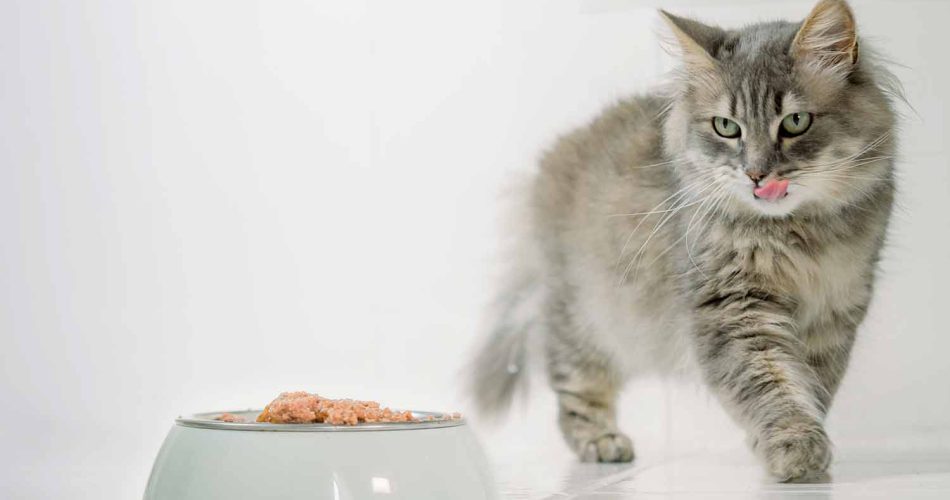Cats, like all living beings, require a balanced diet to stay healthy and thrive. While protein is often the first thing people think about in feline nutrition, vitamins and minerals are equally critical for a cat’s overall well-being. These essential nutrients play vital roles in everything from maintaining strong bones to supporting the immune system and promoting a shiny coat. Understanding which vitamins and minerals are essential for your feline friend is key to ensuring they live a long, healthy life.
The Importance of Vitamins in a Cat’s Diet
Vitamins are organic compounds that support various metabolic processes in your cat’s body. One of the most important vitamins for cats is vitamin A, which is crucial for maintaining healthy vision, particularly in low-light conditions. It also supports the immune system and keeps the skin and coat healthy. Cats cannot produce vitamin A naturally, so they must obtain it from their diet, typically through animal-based sources like liver or fish.

Another essential vitamin for cats is vitamin D. This vitamin plays a vital role in calcium absorption, which is necessary for strong bones and teeth. Unlike humans, cats cannot synthesize vitamin D from sunlight, making dietary sources essential. Foods such as fatty fish or liver are great options to ensure your cat gets enough vitamin D to support their bone health.
Vitamin E is a powerful antioxidant that helps protect your cat’s cells from damage caused by free radicals. This vitamin is essential for a healthy immune system and also supports skin health. It is commonly found in high-quality cat foods that contain fish or plant-based oils. A deficiency in vitamin E can lead to muscle weakness and other health issues, so ensuring your cat has an adequate intake is vital.
The Role of B-Complex Vitamins
B-complex vitamins, including B1 (thiamine), B2 (riboflavin), B6, and B12, are equally important for your cat’s health. These vitamins contribute to energy production, red blood cell formation, and nervous system function. Thiamine is especially critical as it helps your cat metabolize carbohydrates effectively. Without sufficient thiamine, cats can develop neurological issues, including seizures or loss of coordination. Most commercial cat foods are fortified with B-complex vitamins to meet your cat’s daily needs.
Vitamin K and Its Function
Vitamin K is another essential nutrient for cats. It plays a key role in blood clotting, which is crucial for wound healing. While deficiencies are rare, ensuring your cat consumes enough vitamin K through a balanced diet will help maintain their overall health.
Why Minerals Matter for Cats
In addition to vitamins, minerals are equally critical for your cat’s well-being. Calcium is one of the most important minerals for maintaining strong bones and teeth. It also supports muscle function and nerve signaling. Cats require a precise balance of calcium and phosphorus in their diet to prevent skeletal deformities or other bone-related issues. This balance is often achieved through high-quality, nutritionally balanced cat foods.
The Importance of Magnesium
Magnesium is another essential mineral that supports various bodily functions in cats, including maintaining healthy muscles and nerve function. It also helps regulate blood sugar levels and supports cardiovascular health. However, it’s important to avoid excessive magnesium in your cat’s diet, as it can lead to urinary issues, including the formation of bladder stones. Most commercial cat foods are designed to provide the right amount of magnesium for optimal health.

The Role of Iron, Zinc, and Potassium
Iron is essential for oxygen transport in your cat’s blood and plays a critical role in energy production. Zinc is another key mineral that supports healthy skin, fur, and immune function. Potassium helps maintain proper muscle and nerve function, while also regulating fluid balance in your cat’s body. These minerals are typically found in well-balanced cat foods that are designed to meet your feline’s nutritional needs.
Choosing the Right Diet for Your Cat
Ensuring your cat gets the right balance of vitamins and minerals starts with choosing a high-quality, nutritionally complete cat food. Look for options that are specifically formulated for your cat’s life stage, whether they are a kitten, adult, or senior. Avoid feeding your cat homemade diets or human foods without consulting a veterinarian, as these may lack the essential nutrients your cat needs.
Conclusion
Providing your cat with the right balance of vitamins and minerals is essential for their overall health and well-being. These nutrients support everything from strong bones and teeth to a healthy immune system and a shiny coat. By feeding your cat a high-quality diet and consulting your veterinarian for guidance, you can ensure that your feline friend receives the nutrients they need to thrive. A well-balanced diet not only helps your cat live a longer life but also enhances their quality of life, keeping them happy, active, and healthy.
